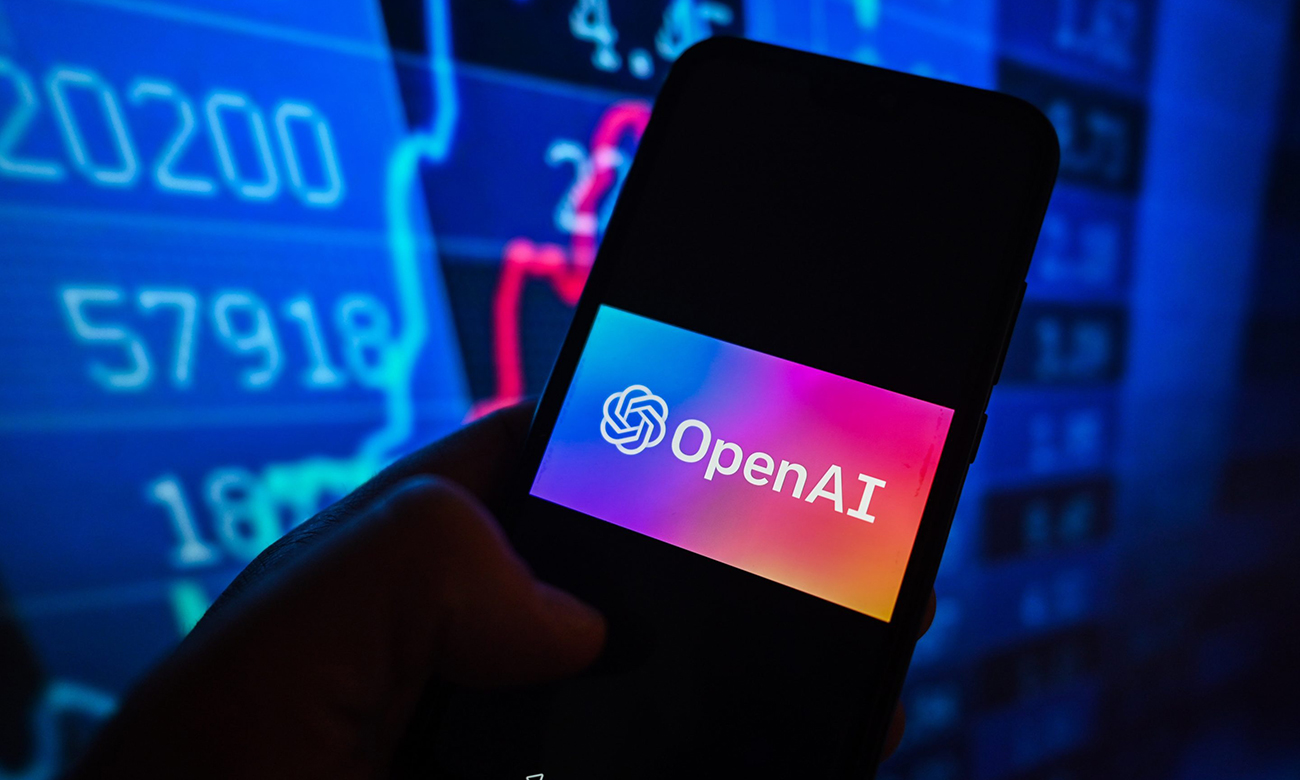
學校開始將人工智能驅動的聊天機器人作為教學工具,公司開始安排人工智能自動執行重復性工作,保險公司則利用人工智能處理新客戶理賠。鑒于人工智能強大的能力,投資者顯然也應該加大對該項技術的投入。
摩根士丹利(Morgan Stanley)的財富管理部門在5月10日發布了一份對近1,000名投資者和理財顧問的調查報告。報告顯示,理財顧問指出,人工智能技術將帶來巨大的投資機會,但目前客戶依舊更傾向于人與人之間的交流。
調查發現,人工智能將對金融業產生巨大影響,有72%的投資者將人工智能稱為未來的“顛覆性技術”。報告稱:“大多數投資者認為,人工智能將在金融服務業掀起革命。”
摩根士丹利財富管理部門的分析、數據與創新總監杰夫·麥克米倫在一份聲明中說:“人工智能的突破性顯而易見,而對于人工智能可能對金融服務業產生的影響,我們的了解非常膚淺。”
盡管人工智能將在金融服務業掀起革命,投資者卻不太可能完全信任這項技術,而且人類理財顧問將繼續發揮關鍵作用,有超過80%的受訪者認為人工智能永遠無法完全取代人類的指導。
但使用人工智能的投資公司將很快在競爭中占據優勢,有63%的投資者稱,他們更愿意選擇使用人工智能技術的公司,而不是沒有使用該技術的公司。
人工智能與投資
多年來,摩根士丹利一直在利用人工智能增強財富管理業務。2017年,摩根士丹利推出了人工智能驅動的軟件,以協助數千名理財顧問制定個性化理財計劃。2019年,摩根士丹利開發的一款人工智能模型,可以根據內部分析師的市場報告中確定的規律制定原始股交易策略。2021年,摩根士丹利宣布與微軟(Microsoft)合作,將該科技公司的云計算和人工智能工具整合到其投資服務當中。
麥克米倫在2021年的《財富》頭腦風暴人工智能(Brainstorm A.I.)大會上將摩根士丹利對人工智能的大力投入稱為“業務需要”。他指出,該銀行使用人工智能生成理財建議,是“為了維護客戶的利益”。
摩根士丹利在今年3月又有新舉措。該銀行宣布投資領先人工智能初創公司OpenAI,并與該公司展開合作。摩根士丹利使用驅動ChatGPT的大語言模型,推出了一款測試版聊天機器人,能夠幫助其16,000名理財顧問利用摩根士丹利的海量財務數據和分析,制定個性化理財建議。
麥克米倫當時在接受美國消費者新聞與商業頻道(CNBC)采訪時表示,在摩根士丹利,“人們希望像最聰明的人一樣知識淵博。當你與客戶通話的時候,人工智能就像是坐在你身邊的首席策略官。”
摩根士丹利的最新調查顯示,該銀行在財富管理部門開發人工智能助手可能開始帶來回報。調查發現,74%的投資者表示理財顧問在人工智能的協助下會有更好的業績。2023年第一季度,該部門的營收為66億美元。
但調查結果也表明,人工智能應該只是作為助手,而不是取代所有理財顧問的職責。有88%的受訪者認為,與人類面對面交流對理財顧問“極其重要”。
雖然一些專門設計用于股票交易的人工智能模型已經初步取得成功,但有專家警告,投資者不能盲目相信ChatGPT等應用程序,將資金交給它們處理,因為人工智能技術依舊存在顯而易見的錯誤。
佛羅里達大學(University of Florida)今年4月的一項研究發現,ChatGPT根據金融資訊預測股票波動的能力,高于人類的分析,但研究人員在接受《財富》雜志采訪時警告,現有模型依舊容易出現錯誤或曲解信息。
他們稱,人工智能可能對銀行和大型基金等機構投資者帶來突破,但使用ChatGPT等模型幫助個人投資者選擇股票,只是“比拋硬幣略好一點”。雖然銀行和大型投資機構可以運行經過數次迭代的不同提示詞和媒體報道,以完善ChatGPT的股票預測,并制定投資策略,但個人投資者可能很難取得同樣的成功,因為在試驗期間,個人的提示詞只有少數標題,準確率僅有51%。(財富中文網)
譯者:劉進龍
審校:汪皓
學校開始將人工智能驅動的聊天機器人作為教學工具,公司開始安排人工智能自動執行重復性工作,保險公司則利用人工智能處理新客戶理賠。鑒于人工智能強大的能力,投資者顯然也應該加大對該項技術的投入。
摩根士丹利(Morgan Stanley)的財富管理部門在5月10日發布了一份對近1,000名投資者和理財顧問的調查報告。報告顯示,理財顧問指出,人工智能技術將帶來巨大的投資機會,但目前客戶依舊更傾向于人與人之間的交流。
調查發現,人工智能將對金融業產生巨大影響,有72%的投資者將人工智能稱為未來的“顛覆性技術”。報告稱:“大多數投資者認為,人工智能將在金融服務業掀起革命。”
摩根士丹利財富管理部門的分析、數據與創新總監杰夫·麥克米倫在一份聲明中說:“人工智能的突破性顯而易見,而對于人工智能可能對金融服務業產生的影響,我們的了解非常膚淺。”
盡管人工智能將在金融服務業掀起革命,投資者卻不太可能完全信任這項技術,而且人類理財顧問將繼續發揮關鍵作用,有超過80%的受訪者認為人工智能永遠無法完全取代人類的指導。
但使用人工智能的投資公司將很快在競爭中占據優勢,有63%的投資者稱,他們更愿意選擇使用人工智能技術的公司,而不是沒有使用該技術的公司。
人工智能與投資
多年來,摩根士丹利一直在利用人工智能增強財富管理業務。2017年,摩根士丹利推出了人工智能驅動的軟件,以協助數千名理財顧問制定個性化理財計劃。2019年,摩根士丹利開發的一款人工智能模型,可以根據內部分析師的市場報告中確定的規律制定原始股交易策略。2021年,摩根士丹利宣布與微軟(Microsoft)合作,將該科技公司的云計算和人工智能工具整合到其投資服務當中。
麥克米倫在2021年的《財富》頭腦風暴人工智能(Brainstorm A.I.)大會上將摩根士丹利對人工智能的大力投入稱為“業務需要”。他指出,該銀行使用人工智能生成理財建議,是“為了維護客戶的利益”。
摩根士丹利在今年3月又有新舉措。該銀行宣布投資領先人工智能初創公司OpenAI,并與該公司展開合作。摩根士丹利使用驅動ChatGPT的大語言模型,推出了一款測試版聊天機器人,能夠幫助其16,000名理財顧問利用摩根士丹利的海量財務數據和分析,制定個性化理財建議。
麥克米倫當時在接受美國消費者新聞與商業頻道(CNBC)采訪時表示,在摩根士丹利,“人們希望像最聰明的人一樣知識淵博。當你與客戶通話的時候,人工智能就像是坐在你身邊的首席策略官。”
摩根士丹利的最新調查顯示,該銀行在財富管理部門開發人工智能助手可能開始帶來回報。調查發現,74%的投資者表示理財顧問在人工智能的協助下會有更好的業績。2023年第一季度,該部門的營收為66億美元。
但調查結果也表明,人工智能應該只是作為助手,而不是取代所有理財顧問的職責。有88%的受訪者認為,與人類面對面交流對理財顧問“極其重要”。
雖然一些專門設計用于股票交易的人工智能模型已經初步取得成功,但有專家警告,投資者不能盲目相信ChatGPT等應用程序,將資金交給它們處理,因為人工智能技術依舊存在顯而易見的錯誤。
佛羅里達大學(University of Florida)今年4月的一項研究發現,ChatGPT根據金融資訊預測股票波動的能力,高于人類的分析,但研究人員在接受《財富》雜志采訪時警告,現有模型依舊容易出現錯誤或曲解信息。
他們稱,人工智能可能對銀行和大型基金等機構投資者帶來突破,但使用ChatGPT等模型幫助個人投資者選擇股票,只是“比拋硬幣略好一點”。雖然銀行和大型投資機構可以運行經過數次迭代的不同提示詞和媒體報道,以完善ChatGPT的股票預測,并制定投資策略,但個人投資者可能很難取得同樣的成功,因為在試驗期間,個人的提示詞只有少數標題,準確率僅有51%。(財富中文網)
譯者:劉進龍
審校:汪皓
Schools are starting to use artificial intelligence-powered chatbots as teaching tools, companies are enlisting A.I. to automate repetitive work, and insurance firms are tapping A.I. to process new customer claims. Considering A.I.’s impressive abilities, it makes sense that investors may also double down on the technology.
Financial advisors say the technology will lead to big changes in investing, although customers still prefer a human touch for the time being, according to a survey of nearly 1,000 investors and financial advisors by Morgan Stanley’s wealth management arm that was published on May 10.
A.I. will have big implications for finance, and 72% of investors call it a “game changer” in the making, according to the survey. “Most believe A.I. will be revolutionary for financial services,” the study said.
“While A.I. is clearly groundbreaking, and we are just scratching the surface of its potential impact within financial services,” Jeff McMillan, head of analytics, data, and innovation at Morgan Stanley’s wealth management arm, said in a statement.
Even if A.I. will revolutionize the field, investors are unlikely to place all of their trust with the technology, and human advisors will continue playing a critical role, with more than 80% of survey respondents saying A.I. would never completely replace human guidance.
But investment firms that embrace A.I. will likely hold an edge over competitors soon enough, as 63% of investors said they would rather work with a company that leverages the technology versus a firm that doesn’t.
A.I. and investing
Morgan Stanley has tapped A.I. to enhance its wealth management arm for years. In 2017, the bank rolled out A.I.-powered software to assist its thousands of financial advisors in creating personalized plans. In 2019, it developed an A.I. model that could come up with original stock trading strategies based on patterns identified in market reports by Morgan Stanley’s own analysts. And in 2021, the bank announced a partnership with Microsoft to integrate the tech company’s cloud computing and A.I. tools with Morgan Stanley’s investment services.
McMillan framed Morgan Stanley’s big bets on A.I. as a “business requirement” while speaking at Fortune’s Brainstorm A.I. conference in 2021, saying that the bank’s use of A.I. to generate advice was “in the interest of the client.”
Morgan Stanley took another big step in March of this year, when it announced an investment and partnership with leading artificial intelligence startup OpenAI. Using the same large language model technology that powers ChatGPT, Morgan Stanley launched its own chatbot in a trial version that would help the bank’s 16,000 financial advisors navigate Morgan Stanley’s vast libraries of financial data and analysis to create personalized advice.
“People want to be as knowledgeable as the smartest person” at Morgan Stanley, McMillan said in an interview with?CNBC at the time. “This is like having our chief strategy officer sitting next to you when you’re on the phone with a client.”
Morgan Stanley’s bet on A.I. assistants in its wealth management arm—which generated $6.6 billion in revenue during the first quarter of 2023—may be starting to pay off, according to its recent survey, which found that 74% of investors say financial advisors would work better if assisted by A.I.
But the survey’s findings also suggested that A.I. should only remain an assistant, rather than take on all of financial advisors’ duties, with 88% of respondents saying that face-to-face interactions with a human were “extremely important” for financial advisors.
While some A.I. models specifically designed to trade stock have shown early success, some experts have warned that investors should not blindly trust applications like ChatGPT with their money, as the technology is still prone to glaring errors.
An April study from the University of Florida found that ChatGPT could outperform human analysis to predict stock movements based on financial news headlines, although in an interview with Fortune, the researchers cautioned that current models are still prone to making mistakes or misinterpreting information.
They said that A.I. will likely become revolutionary for institutional investors like banks and large funds, but models like ChatGPT are only “a little better than tossing a coin” when it comes to helping individual investors make stock picks. While banks and large teams could run many iterations of different prompts and headlines to refine ChatGPT’s stock predictions and come up with an investment strategy, individual investors would likely have less success, as individual prompts with only a few headlines during the experiment only had a 51% accuracy rate.






